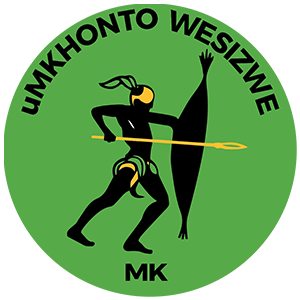The South African elections have concluded, and the dust has begun to settle. The campaign trails, heated debates, and polling stations are behind us. Now, citizens and politicians alike face the crucial question: “Elections are over, now what?” This period marks a critical phase in the democratic process, where the real work of governance begins. Here’s a comprehensive look at what comes next for elected officials, political parties, and the public in South Africa.
For Elected Officials: Transitioning from Campaigning to Governing
1. Forming a Government
- Coalition Building: Given the likelihood of no single party securing a decisive majority, coalition negotiations become paramount. Parties will engage in discussions to form alliances that can command a legislative majority. This process involves negotiating power-sharing arrangements and agreeing on common policy priorities.
- Cabinet Appointments: Leaders will appoint key cabinet positions, selecting individuals to head various government departments. These appointments are crucial as they shape the policy direction and implementation strategies.
2. Setting Priorities and Policy Agendas
- Legislative Agenda: Elected officials must quickly outline their legislative priorities. This includes drafting policies and proposing bills that align with their campaign promises. Key areas of focus are likely to include job creation, economic reform, healthcare, and education.
- Budget Planning: Formulating the budget is a critical task that reflects the government’s priorities and commitment to addressing pressing issues such as unemployment, infrastructure, and social services.
3. Engaging with Stakeholders
- Public Consultations: Effective governance requires ongoing dialogue with citizens. Town halls, public forums, and surveys help ensure that government actions reflect the people’s needs and concerns. This engagement helps build trust and accountability.
- Collaboration with Civil Society: Working with non-governmental organizations, community groups, and the private sector can enhance policy development and implementation.
For Political Parties: Reflecting and Strategizing
1. Analyzing Election Results
- Performance Review: Parties need to analyze their performance, understanding why they succeeded or fell short. This involves examining voter turnout, regional strengths and weaknesses, and the effectiveness of their campaign strategies.
- Feedback Gathering: Engaging with party members and supporters to gather feedback on the campaign and election results can provide valuable insights for future strategies.
2. Strengthening Party Structures
- Building Grassroots Support: Strengthening local party structures and ensuring active participation at the grassroots level is crucial for maintaining a robust party organization.
- Leadership Training: Investing in leadership development programs helps prepare the next generation of leaders, ensuring continuity and growth within the party.
3. Preparing for Future Elections
- Policy Development: Parties should focus on developing comprehensive policy platforms that address long-term issues and resonate with voters.
- Community Engagement: Maintaining continuous engagement with communities between election cycles builds trust and support, making it easier to mobilize voters in future elections.
For Citizens: Staying Informed and Engaged
1. Holding Officials Accountable
- Monitoring Government Actions: Citizens should stay informed about government activities and hold elected officials accountable for their promises and actions. This can be done through various means such as attending public meetings, following news updates, and using social media platforms.
- Advocacy and Activism: Engaging in advocacy and activism ensures that important issues remain on the political agenda. Joining or supporting advocacy groups can amplify voices and influence policy decisions.
2. Participating in Civic Activities
- Community Involvement: Getting involved in community projects and local governance initiatives helps strengthen democratic processes at the grassroots level.
- Volunteering: Volunteering for civic organizations and local causes not only supports community development but also fosters a culture of active citizenship.
3. Educating and Mobilizing Others
- Political Education: Educating oneself and others about political processes and issues enhances democratic participation. Hosting discussions, workshops, and seminars can spread awareness and understanding.
- Voter Registration Drives: Encouraging voter registration and participation ensures a healthy democracy. Organizing drives and campaigns to register new voters can significantly impact future elections.
The period following elections in South Africa is as crucial as the elections themselves. For elected officials, it’s a time to transition from promises to action. For political parties, it’s a moment for reflection and strategic planning. For citizens, it’s an opportunity to remain engaged and hold their leaders accountable. By staying informed, participating in civic activities, and advocating for transparency and accountability, everyone can contribute to the health and vitality of South Africa’s democracy. The journey of governance continues, and it requires the collective effort of all stakeholders to navigate the path forward effectively.




